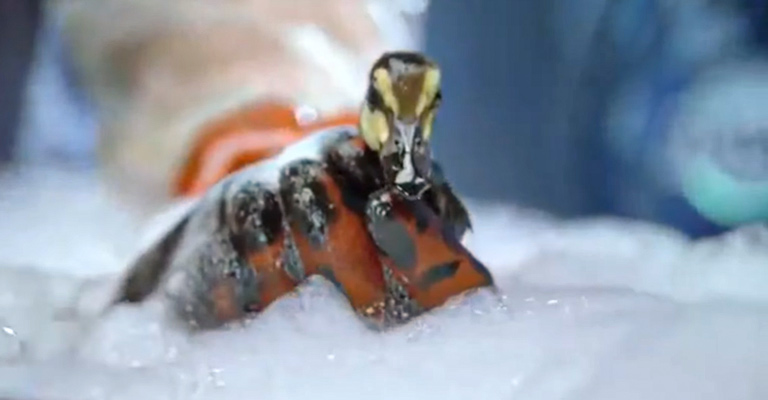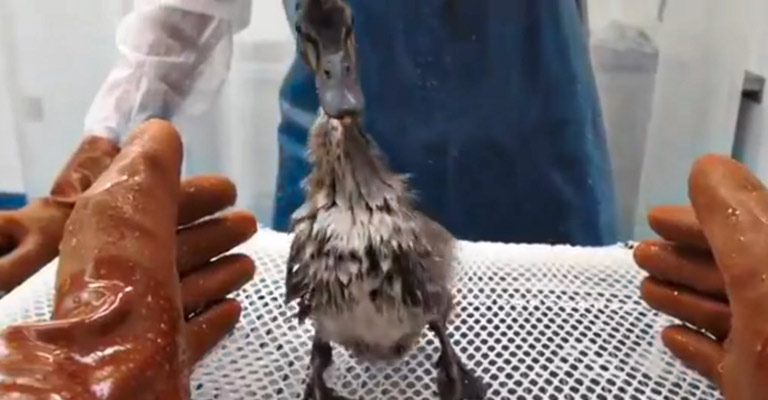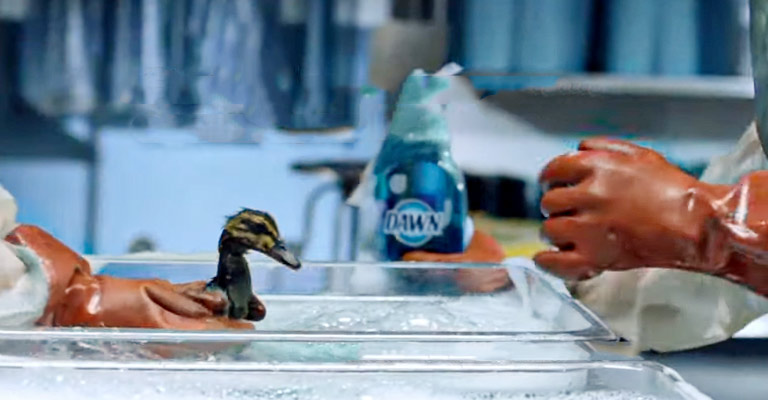In the realm of wildlife conservation and rescue, the seemingly mundane household item, Dawn Dish Soap, has emerged as a hero. Its ability to clean birds affected by oil spills has made it a household name among wildlife rehabilitators and environmentally-conscious individuals.
But is Dawn Dish Soap truly safe for our feathered friends, or are there hidden risks lurking beneath the soapy surface? In this blog post, we delve into the world of bird rescue and explore the use of Dawn Dish Soap as a cleaning agent.
We’ll uncover the science behind its effectiveness, examine potential risks, and provide insights into how it should be used properly to ensure the well-being of birds. So, stay focused.

What Is Dawn Dish Soap?
Dawn Dish Soap is a popular brand of liquid dishwashing detergent known for its effectiveness in cutting through grease and grime on dishes. It is manufactured by Procter & Gamble and is widely used in households across the United States and other countries.
Dawn is renowned for its versatile cleaning abilities and is not limited to just dishwashing; it’s often used for various cleaning tasks, including removing stains from clothing, cleaning household surfaces, and even as a component in homemade cleaning solutions.
One of its notable features is its ability to help rescue and clean wildlife affected by oil spills, as it is gentle on animals’ skin and feathers. Dawn Dish Soap comes in various formulations and scents to cater to different cleaning needs and preferences.
The Ingredients in Dawn Dish Soap
The specific ingredients in Dawn Dish Soap can vary depending on the formulation and scent, but a typical version of Dawn contains the following key ingredients:
- Water: The primary component of the formula.
- Sodium Lauryl Sulfate (SLS): A surfactant that helps to break down and remove grease and grime.
- Sodium Laureth Sulfate (SLES): Another surfactant that aids in cleaning and foaming.
- Lauramine Oxide: A cleaning agent that boosts the detergent’s ability to cut through grease.
- Alcohol Denat: This helps with cleaning and quick evaporation.
- Sodium Chloride: Common table salt used as a thickener.
- PEI-14 PEG-10/PPG-7 Copolymer: A synthetic polymer that helps to stabilize the formula.
- Phenoxyethanol: A preservative that prevents microbial growth in the product.
- Methylisothiazolinone: Another preservative to extend shelf life.
- Fragrance: To provide a pleasant scent to the product.
- Colorants: May be added for aesthetic purposes.
- Citric Acid: Occasionally included for pH adjustment.
It’s important to note that Dawn Dish Soap also offers specialized formulations with additional ingredients tailored for specific purposes, such as antibacterial versions or those designed for use in dishwashers.
Is Dawn Dish Soap Safe for Birds?

Dawn Dish Soap is often recommended as a safe option for cleaning birds and other wildlife that have been affected by oil spills.
This recommendation is based on its ability to effectively remove oil and grease while being gentle on animals’ skin and feathers.
When wildlife is exposed to oil spills, it can coat their feathers or fur, leading to loss of insulation and buoyancy, which can be life-threatening.
Dawn Dish Soap, when used properly by wildlife rescue professionals, can help remove the oil and restore the animal’s ability to stay warm and float in water.
However, it’s crucial to emphasize that Dawn or any other dish soap should only be used under the guidance of trained wildlife rescue personnel.
Using soap on wildlife without proper knowledge and care can cause harm. After cleaning, the animals need thorough rinsing and rehabilitation to recover fully.
How to Use Dawn Dish Soap to Clean Birds?
Cleaning birds with Dawn Dish Soap should only be done by trained wildlife rescue professionals, as it requires specialized knowledge and care to ensure the safety and well-being of the birds.
If you come across birds or other wildlife that are affected by oil spills or contamination, here is a general outline of the steps that professionals typically follow:
Safety First
Ensure your safety by wearing appropriate protective gear, such as gloves and eye protection, to prevent any contact with potentially harmful substances.
Containment
Carefully capture the affected bird using a net or gloves, and place it in a secure and well-ventilated container or cage. Handle the bird gently to minimize stress and injury.
Assessment
Examine the bird’s condition, noting the extent of oil contamination and any injuries or health issues. Document the bird’s species, location, and any other relevant information.
Prepare the Cleaning Solution
Mix a mild solution of Dawn Dish Soap and warm water in a basin or tub. The exact ratio may vary depending on the situation, but typically, a few drops of Dawn in a large basin of warm water are used.
Cleaning Process
- Dip a soft, clean cloth or sponge into the soapy water.
- Gently and carefully wash the contaminated feathers, avoiding the bird’s eyes, beak, and mouth.
- Use a soft brush or toothbrush to clean hard-to-reach areas, but be extremely gentle to avoid damaging the feathers or skin.
- Rinse the bird thoroughly with lukewarm water to remove all soap residue. Ensure that the water is not too hot or too cold.
Drying and Warming
Place the bird in a warm, dry area to dry its feathers and warm it up. You can use heat lamps or warm towels (carefully monitored to avoid overheating) to help with this process.
Post-Cleaning Care
Provide appropriate care and monitoring to the bird, including food, water, and shelter. Depending on its condition, you may need to transfer it to a wildlife rehabilitation center for further care.
Release
Once the bird has fully recovered and is deemed healthy by wildlife experts, it can be released back into its natural habitat.
Remember that cleaning oil-contaminated birds is a delicate and specialized process that should only be undertaken by professionals with experience in wildlife rescue. Attempting to clean a bird without the necessary expertise can cause more harm than good.
Potential Risks of Cleaning Birds with Dawn Dish Soap

While Dawn Dish Soap is often used by trained wildlife rescue professionals to clean birds affected by oil spills, there are potential risks and concerns associated with this process. It’s essential to be aware of these risks and exercise caution when attempting to clean birds or any wildlife:
Stress and Injury
Handling and cleaning a wild bird can be highly stressful for the animal. Birds may become agitated, and stress can lead to injuries, heart attacks, or other health issues, especially if not handled with care.
Ingestion of Soap
Birds may inadvertently ingest soap during the cleaning process. Ingested soap can be harmful and may lead to digestive problems or toxicity.
Feather Damage
Improper cleaning techniques can damage the bird’s feathers, which are essential for insulation and waterproofing. Damaged feathers can reduce the bird’s chances of survival in the wild.
Eye and Respiratory Irritation
If soap or soap residue comes into contact with a bird’s eyes, beak, or airways, it can cause irritation or damage to these sensitive areas.
Inadequate Rinsing
Failing to thoroughly rinse the bird after cleaning can leave soap residue on its feathers, which can affect its ability to stay warm and dry.
Secondary Infections
Birds with oil contamination are already at risk of infections. If cleaning is not done properly or if the bird’s immune system is compromised, it may be vulnerable to secondary infections.
Regulatory Compliance
In some regions, there may be legal regulations or permits required for the cleaning and rehabilitation of wildlife, including birds. Using Dawn Dish Soap or other cleaning agents without proper authorization may lead to legal issues.
To minimize these risks, it’s crucial to leave the cleaning of oil-contaminated birds to trained wildlife professionals and organizations with the necessary experience and expertise.
If you encounter a bird or other wildlife in distress, contact local wildlife authorities, rehabilitation centers, or animal rescue organizations for assistance.
Alternative to Dawn Dish Soap for Cleaning Birds
If you’re in a situation where you need to clean a bird or wildlife affected by oil or other contaminants and you don’t have access to Dawn Dish Soap, there are a few alternatives you can consider.
These alternatives should be used cautiously, and it’s always best to involve trained wildlife professionals whenever possible. Here are some alternatives:
Other Mild Dish Soaps
While Dawn is a commonly recommended choice, other mild dish soaps with no added fragrances, dyes, or harsh chemicals can also be used. Ensure the soap is well-diluted in warm water.
Baby Shampoo
Unscented, mild baby shampoos are gentle and can be used to clean birds. They are designed to be safe for sensitive skin and eyes.
Olive Oil or Vegetable Oil
In some cases, especially if the contaminant is a heavy, sticky substance like tar, you can use olive oil or vegetable oil to help dissolve and remove the substance. After applying the oil, you can then wash the bird with a mild soap solution and rinse thoroughly.
Baking Soda Paste
You can create a paste by mixing baking soda with water. This paste can help in removing certain contaminants, but it should be used carefully and sparingly, avoiding contact with the bird’s eyes, beak, and mouth.
Cornstarch
Cornstarch can be used to absorb and gently remove oily substances. Sprinkle a small amount on the contaminated area and then carefully brush or wipe it away.
Regardless of the alternative you choose, follow these important guidelines:
- Always dilute the cleaning solution with lukewarm water to ensure it is mild and gentle.
- Be extremely gentle when handling the bird to minimize stress and the risk of injury.
- Avoid contact with the bird’s eyes, beak, and mouth.
- Rinse the bird thoroughly with clean, lukewarm water after cleaning to remove any residue.
- Seek guidance and assistance from local wildlife authorities or rehabilitation centers whenever possible.
Remember that cleaning wildlife is a specialized task, and it’s crucial to involve experts or professionals experienced in wildlife rehabilitation whenever you encounter a bird or animal in need of cleaning and care.
FAQs
Yes, Dawn Dish Soap is considered safe for cleaning birds affected by oil spills. When used correctly by trained wildlife professionals, it effectively removes oil without harming the birds’ feathers or skin.
While Dawn is a popular choice, you can use other mild, unscented dish soaps. The key is to ensure it’s gentle, diluted with water, and used cautiously, avoiding contact with the bird’s eyes and beak.
Handle the bird gently to minimize stress and injury. Dilute the soap in lukewarm water, avoid contact with eyes and beak, rinse thoroughly, and seek professional assistance when possible.
There are potential risks, including stress, feather damage, and ingestion of soap. Therefore, it’s crucial to involve trained wildlife professionals who have experience in bird rehabilitation.
While Dawn is primarily used for birds affected by oil spills, it can be suitable for some other wildlife as well. However, always consult with experts or wildlife authorities for guidance and consider alternatives when needed.
Wrapping Up
In the world of wildlife rescue, Dawn Dish Soap has undeniably played a crucial role in saving countless birds from the dire consequences of oil contamination. Its gentle yet effective cleaning properties, when used by trained professionals, have offered a glimmer of hope to these vulnerable creatures.
However, our exploration reveals that despite its benefits, using Dawn Dish Soap on birds is not without risks, including stress, potential ingestion of soap, and feather damage.
It’s a reminder that while this household staple can be a lifesaver, it should only be employed by those with the knowledge and experience to do so safely. Thank you for your time.